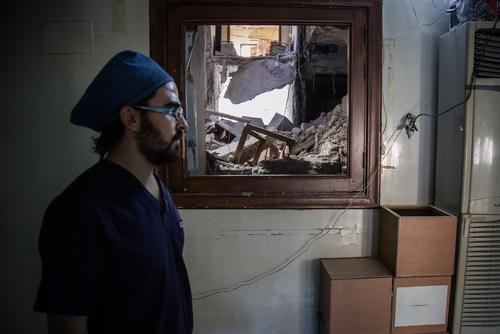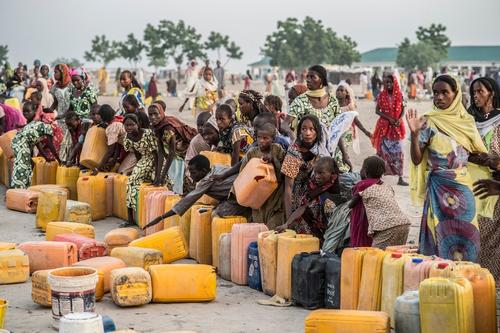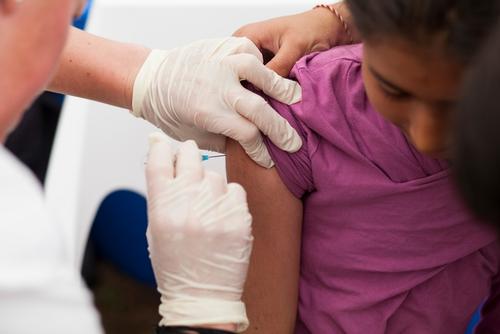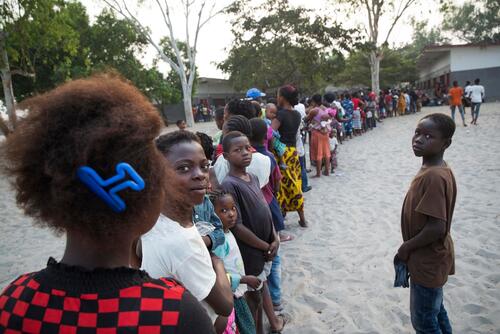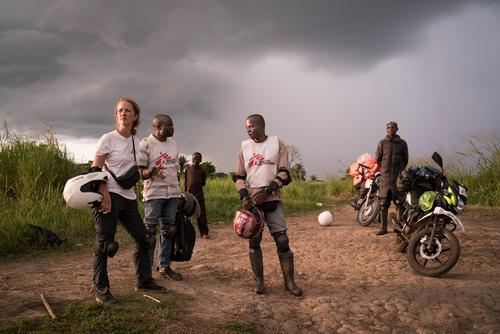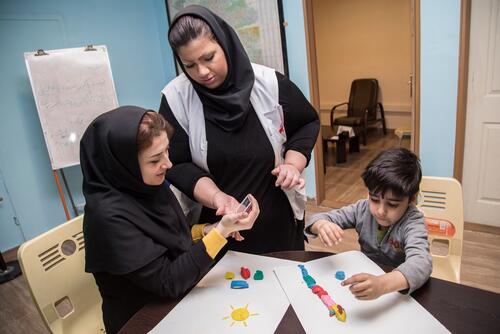On 10 January 2016, Shiara Hospital in Razeh district, Northern Yemen, was hit by a projectile.
Planes were seen flying above the facility supported by Médecins Sans Frontières (MSF) in an area where the Saudi-led coalition had been active. Six people were killed and eight were injured. On 15 February, Ma’arat Al Numan hospital in Idlib (northern Syria) was hit by airstrikes within a few minutes of each other. Twenty-five people were killed, including one MSF staff member and nine local hospital staff.
Until then, the outpatient department of this hospital had been treating around 1,500 people a month and its emergency room had been carrying out on average 1,100 consultations. The destruction of the hospital left the local population of approximately 40,000 people without access to medical services in an active conflict zone.
These dramatic events in Yemen and Syria set the tone for a year marked by attacks on healthcare facilities. In 2016, MSF reported at least 74 attacks (71 in Syria and three in Yemen) on 34 health structures it was managing or supporting. In Syria, 58 of the 71 attacks occurred in Aleppo governorate. Of these, 45 took place during the offensive on east Aleppo between July and December 2016. Dozens of medical staff, patients and their caretakers were killed as a result of shellings and bombings of hospitals in these countries. In many areas, MSF was unable to maintain an international staff presence and local medical staff had to suffer the attacks and their tragic consequences with limited outside support.
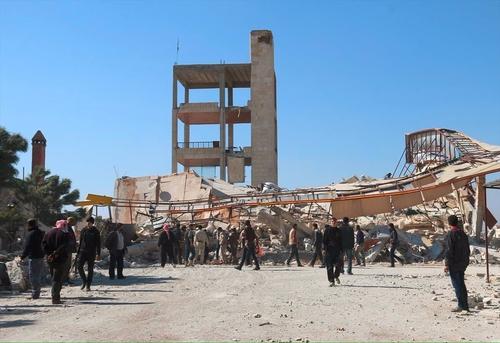
Attacks on hospitals are nothing new, and health workers and facilities are no strangers to acts of violence. However, these incidents have been occurring at an alarming rate and taken a horrific toll. In Syria, they have become part of an all-out war, a dynamic of terror aimed not only at medical facilities but also at public spaces and humanitarian convoys. It seems that anything goes to deny care and assistance to a population in areas considered hostile. In northern Yemen, medical facilities, including some supported by MSF, have been completely destroyed in blanket bombings, bringing medical services to a standstill.
Whether healthcare facilities are targeted within the context of counter-terrorist operations, as a way to deprive enemy-controlled territories of key infrastructure, or as a strategy to make life unbearable for civilians in areas considered to be hostile, the consequences are similar: patients and their caretakers are killed or injured; local medical providers are depleted, and emergency care is disrupted at a time when people need it most. Routine medical services are also interrupted. Where will the child with pneumonia go for treatment? What happens to vaccine schedules in a city under siege?
Perhaps the most insidious consequence is that this violence makes hospitals places to be feared. In mid-2016, local communities in the southern Syrian town of Jasim protested against the reopening of a hospital out of fear of more attacks. In Yemen, some have reported feeling safer at home than in hospital. Bombing hospitals is inherently about destroying the last havens of humanity in war.
Reassurances given by the powers that be – some of whom have been directly involved in hospital bombings – are hollow, if not hypocritical. UN Security Council members unanimously signed a resolution on 3 May 2016 (Resolution 2286) reaffirming the protected status of medical services and civilians in conflict. Yet attacks have continued on their watch and at times with their involvement. In the past two years, four of the five permanent members of the Security Council have, to varying degrees, enabled or been involved in attacks against medical facilities. The Syrian government and its Russian allies, the US government and its Afghan allies, and the international coalition headed by Saudi Arabia in Yemen, and backed by the US, the UK and France, all share a deplorable track record of being associated with bombings of medical facilities.
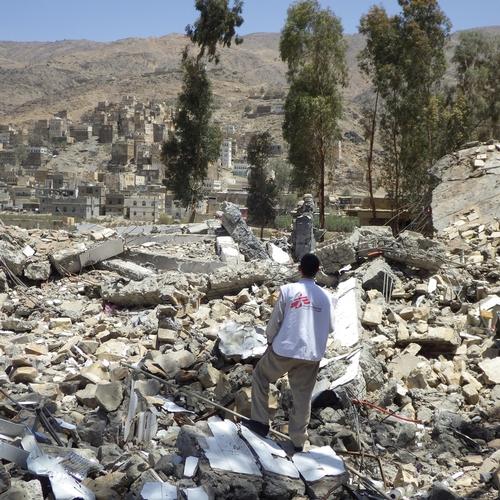
These broad attacks on communities and targeted strikes on health facilities are excused by their perpetrators as ‘mistakes’, denied outright or met with justifications or simply silence. Public posturing notwithstanding, the roots of this phenomenon appear to run deep. The means of waging wars have evolved and the traditional definitions of what war is, what self-defence means, and who constitutes a combatant or a civilian are being contested. And so, in turn, is the provision of medical care to a sick or wounded enemy. Paving the way for “unconstrained use of military power by states around the globeHow Everything Became War and the Military Became Everything: Tales from the Pentagon, Rosa Brooks, Simon & Schuster, 2016”, these dynamics have also contributed to creating an environment in which principles such as proportionality and distinction are eroded and decisions are made that lead to the deaths of medical personnel and patients. Our doctors are not present in conflict areas to dispense treatment on the basis of their judgment of the justness of a cause or the morality of the combatants. They are there to care for the sick and wounded, irrespective of their affiliations and whether they have participated in the conflict, and that includes those labelled as terrorists or criminals.
Although we might have felt a little more helpless each time we heard about the bombing of yet another hospital this year, we need to keep looking for ways to prevent attacks on medical facilities. We must take action so that the perpetrators pay the highest possible political price for them. As long as the military and political benefits outweigh the costs and there are no real consequences for bombing hospitals and killing those inside, how can we expect these attacks to stop? MSF will continue to speak out loudly and clearly about what our teams and those supported by us witness in the field. We will act in solidarity with the medical professionals in the field and the citizens concerned, and crucially, we will continue to strive to deliver humanitarian assistance to people caught up in conflicts.



